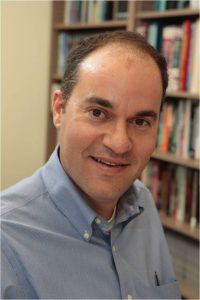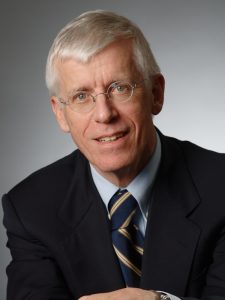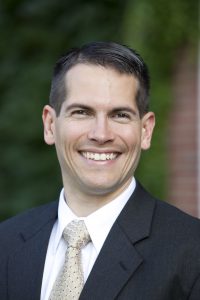U.S. withdraws from Paris Climate Accord
USC experts are available today to discuss the possible political, economic, environmental and international outcomes and impacts of President Trump’s decision to withdraw from the Paris Climate Accord.
Contact: Emily Gersema, (213) 361-6730 or gersema@usc.edu; or USC Media Relations at (213) 740-2215 or uscnews@usc.edu
 Innovation of green technology will continue
Innovation of green technology will continue
“If the USA walks out from ‘the deal,’ what happens next? Is the U.S the key to the galaxy in the year 2017? Yes, there are multiple equilibria to this complex bargaining game, but here is my prediction: different nations will make different bets on the green economy. Elon Musk and Tesla will press ahead on their projects. A competition is taking place all over the world to build the green economy.”
Matthew Kahn shared his thoughts about the Paris Climate Accord in a recent blog post. Kahn is a professor of economics, spatial sciences and environmental studies at the USC Dornsife College of Letters, Arts and Sciences. He writes about the economics of climate change, innovation in sustainability, and environmental policy for the Harvard Business Review, as well as his personal blog, Environmental and Urban Economics. He is available today for questions about the Paris Climate Accord’s effect on the U.S. green economy and innovation, and how China may benefit.
Contact: kahnme@usc.edu
 Heed the science; emissions affect health
Heed the science; emissions affect health
“The quality of the environment is an important determinant of population health. The key stakeholder here is the public, which aspires to have a cleaner, healthier environment. Gallup poll data show continued public concern about the environment, a preference for environmental quality over economic growth, and a majority belief that climate change is a ‘real problem.’
“In many ways, Trump’s campaign rhetoric on the environment recalled that of Ronald Reagan in 1980. But by the time of his 1984 re-election bid, Reagan had replaced his initial EPA leadership with leaders supportive of environmental goals; their accomplishments would include removal of lead from gasoline and the first EPA funding for studies related to global climate change.”
Jonathan Samet, the director of the Institute for Global Health at the Keck School of Medicine of USC, wrote this as part of a recent commentary that appeared in the New England Journal of Medicine in March. Samet has led research at USC that examines the impact of pollution and smoking on health.
Contact: (323) 865-0803 or jsamet@usc.edu
 China moves to take the helm on global emission reductions
China moves to take the helm on global emission reductions
China and the European Union have forged an alliance to accelerate their efforts to reduce carbon emissions.
Clayton Dube, the executive director of the U.S.-China Institute at the USC Annenberg School of Communication and Journalism, is available today to answer questions about this alliance, as well as the political and potential economic shift of China taking a leading role on pollution reduction.
Contact: (213) 821-4382 or cdube@usc.edu
California likely to continue restrictions on pollutants
Shon Hiatt, an assistant professor of management and organization at the USC Marshall School of Business, predicted in a recent interview with KPCC that California will stay the course with its carbon regulations, even if the United States, in its federal or global policies, eases off.
Some businesses will thrive in California, while others may leave the state to reduce the expense and resources needed for compliance, he said.
“As the prices get higher and higher to meet the [state] mandate, you’re going to see people trying to invest in solar to try to reduce that cost,” he said. “Plus you’re going to see renewable energy companies, like on the production side — geothermal, hydro, solar and wind — who are going to invest in new operations so they can exploit the higher prices and make a greater profit.”
Hiatt can discuss the economic implications of U.S. withdrawal from the Paris Climate Accord. An expert on agribusiness and the energy sectors, Hiatt can also touch on the fallout for California — which leads the nation in carbon reduction measures — and the impact on interstate commerce.
Contact: (213) 740-5103 or shiatt@usc.edu
# # #




